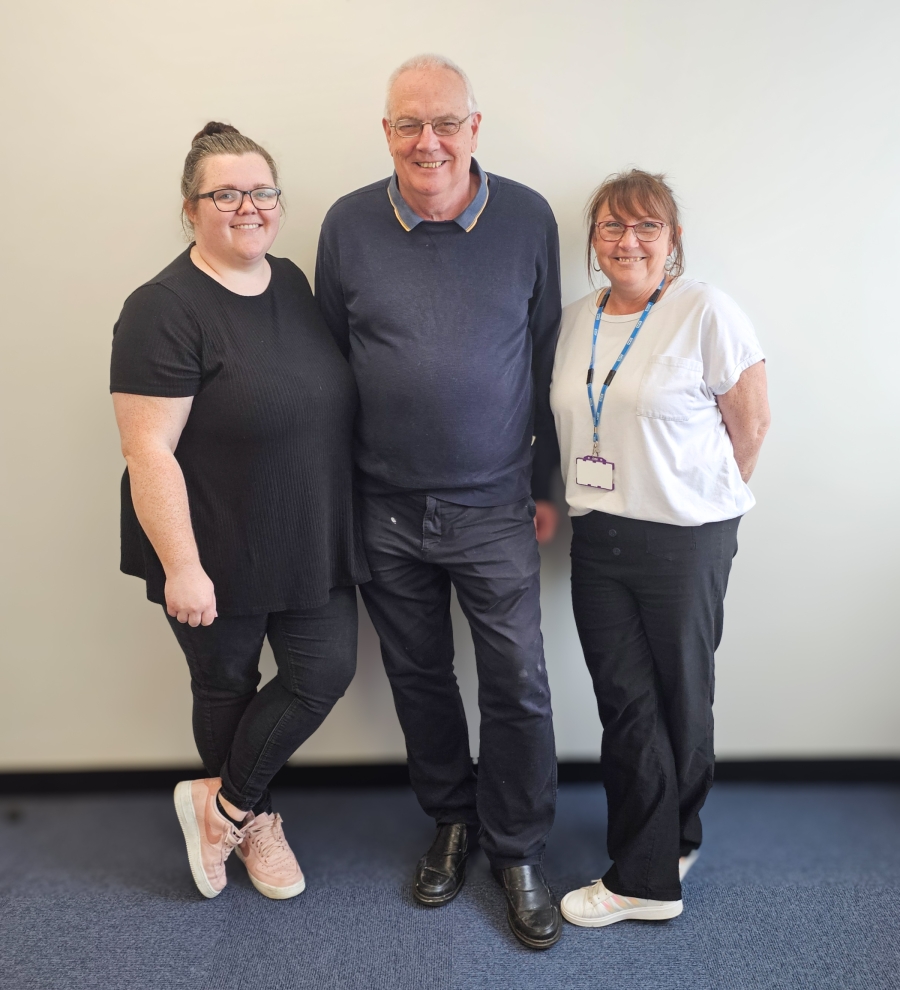In 2005 Tony Blair won a third consecutive labour government, a pint of milk was around 35p, London was attacked in the devastating 7/7 bombings and the world witnessed events such as Pope John Paul II’s death and Hurricane Katrina hitting Louisiana. But here in Lancashire, our Early Intervention Service (EIS) was beginning a new and innovative journey, helping patients who experience psychosis for the first time receive support.
Today, 20 years on, our colleagues are celebrating a fantastic two decades of supporting patients following initial episodes of psychosis.
The service currently helps over 800 patients between the ages of 14 and 64 years old.
Kevin, our longest serving member of staff within the team, 65, from Preston has been working in EIS for 19 years and is one of 18 support, time and recovery workers (STR) in the Fylde Coast Team, who are also celebrating being a top performing team nationally for the past two years.
Kevin, who had a lot of experience working in mental health prior to working in EIS, believes his life experience has helped him thrive in his role as a STR worker.
Kevin said:
“I love the job because of the flexibility and to be able to organise my own time. Every day is different and I’m able to go out and about supporting service users enabling me to build relationships and seeing them improve is such a rewarding feeling.”
In his role, Kevin supports practitioners on visits, providing psychological and social interventions to patients when required, as well as practical support and advice.
He continues:
“It enables me to have a greater understanding of service users’ needs and behaviours.”
One of Kevin’s proudest moments was helping a patient who struggled to leave the house. Over time, Kevin built up a rapport and trust with him, meaning that when he was invited to close friend’s wedding he had lost touch with, he asked Kevin to support him. Kevin travelled to Chester with the patient and supported him to attend the wedding and party afterwards.
Kevin said:
“It was amazing to see him get better over time, I couldn’t believe he stood up in church and spoke to so many people, I felt so proud.”
Kevin also understands the importance of a good working rapport with patients, to be visible, to listen and to build mutual trust and respect, which he explains is “essential for a patient’s recovery. It takes time, people take time to trust you.”
There are many reasons why a person might experience psychosis, such as a traumatic experience, using drugs or substances, or they might be struggling with life's challenges.
The team aim to help people recover as quickly and as well as possible, particularly by offering help early and supporting individuals and families to lead the lives that they want to live.
Kevin has seen tremendous change over the years including a dramatic rise in caseload numbers, as the service has become more recognised, and its age range has expanded from 14 to 35 up to 65.
Kevin explained:
“Lots of things have changed, we have much more collaboration now with patients and they have much more of a say in their care and treatment. There is a lot more involvement with carers and families, as we understand how much serious mental health problems does not just affect the person but also the people who care for them.”
Kevin also notes how the service now monitors patients’ physical health, not just their mental health and provides advice to carers.
One of his favourite parts of the role is leading on the monthly carers group, providing support, advice and involves facilitating guest speakers.
Kevin hopes EIS can continue helping others for another 20 years and beyond!
Find out more about our Early Intervention Service.
If you are worried that you or someone you care for is experiencing psychosis then you should visit your GP, who may refer you to specialist mental health services.
Further mental health support is available across Lancashire and South Cumbria through calling NHS 111 and pressing option 2, which is available 24 hours a day, seven days a week who will be able to signpost you to the most appropriate service to meet your needs.
If you are concerned that someone may be an immediate danger to themselves or others, please call 999.

